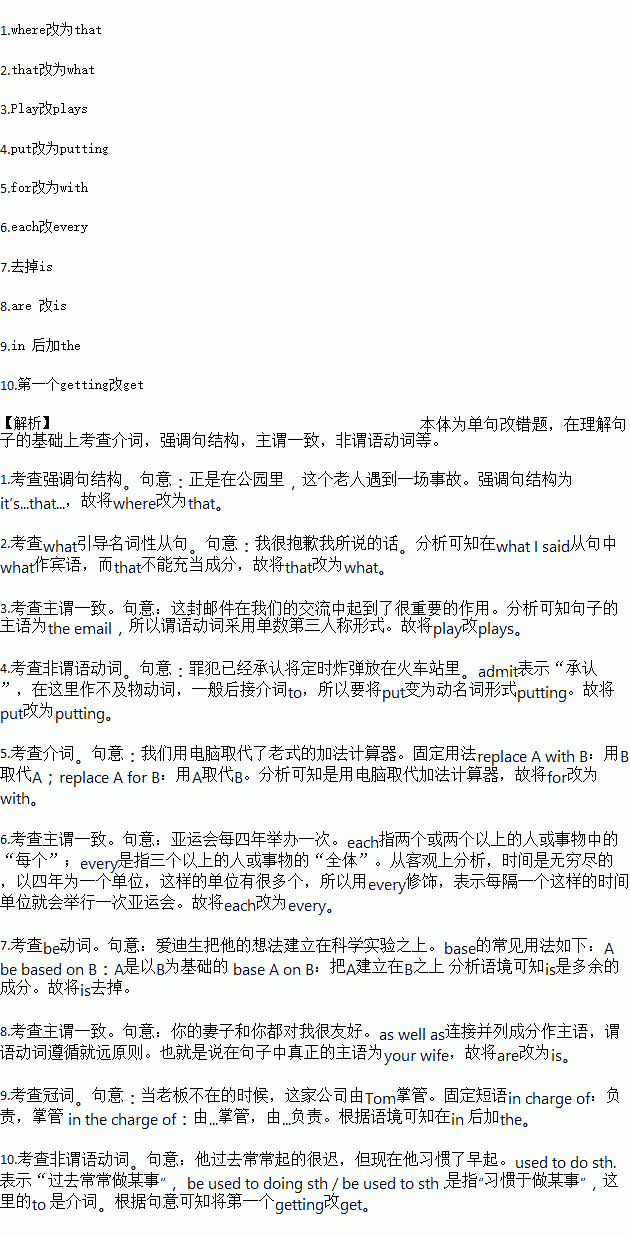题目内容
1.It was in the park where an accident happened to the old man.
2.I'm sorry for that I said.
3.The email play an important part in our communication.
4.The criminal has admitted to put the time bomb inside the railway station.
5.We've replaced the old adding machine for a computer.
6.The Asian Games are hosted each four years.
7.Edison is based his ideas on scientific experiment.
8.Your wife as well as you are friendly to me.
9.The company is in charge of Tom when the boss is away.
10.He used to getting up late but now he is used to getting up early.
练习册系列答案
相关题目

